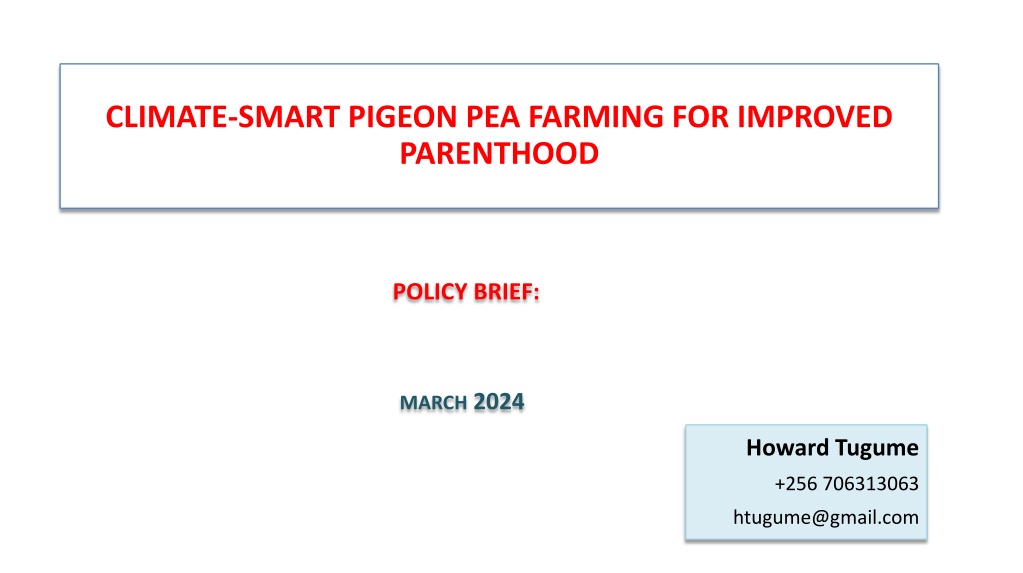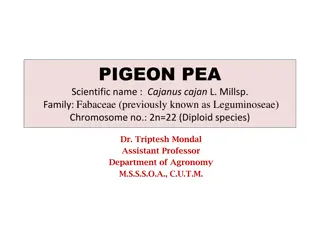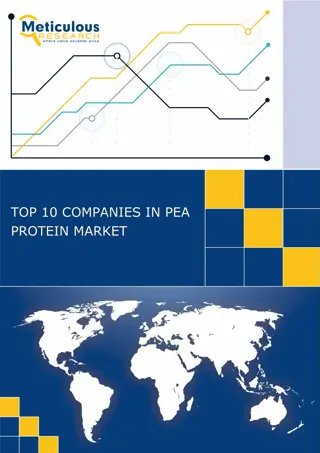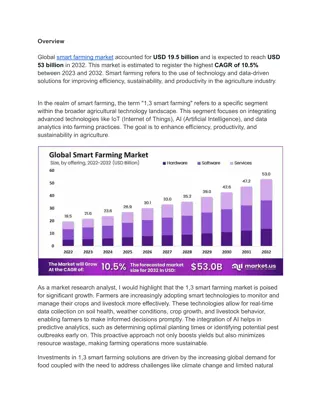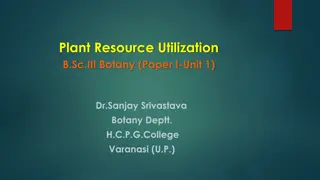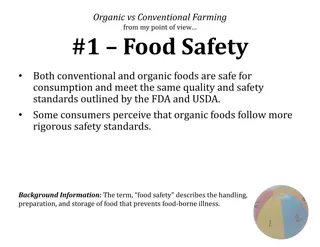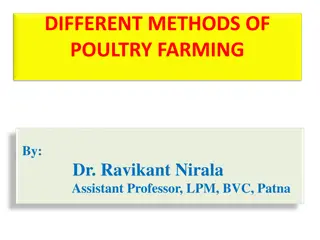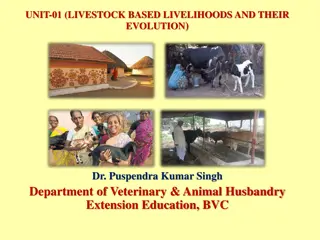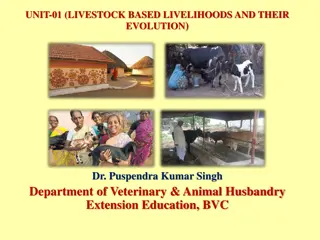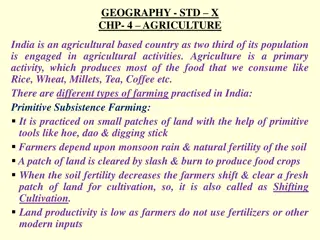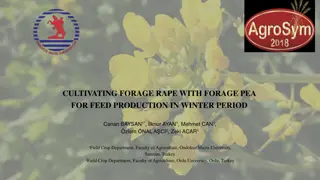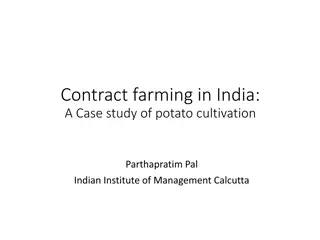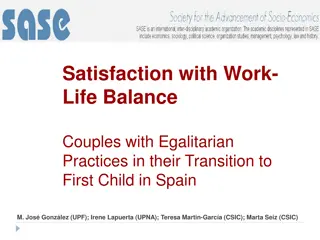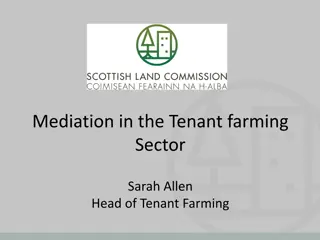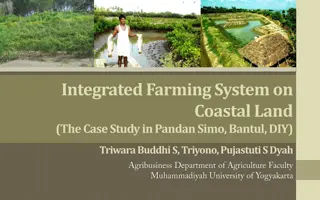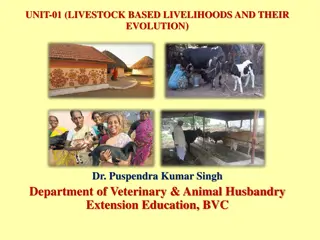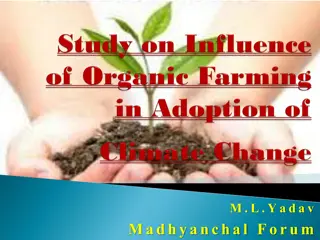Enhancing Parenthood through Climate-Smart Pigeon Pea Farming
Pigeon peas play a vital role in climate-smart agriculture, impacting farmers' roles as parents in ways not previously studied. Research objectives included validating parenthood among pigeon pea farmers and analyzing factors influencing parenthood. Key findings highlighted gender differences in income, technology adoption, and parenting hours. Policy implications focused on promoting climate-smart farming and shifting social norms around parenting roles to support women in childcare. The study emphasizes empowering mothers through pigeon pea farming to improve parenthood.
Download Presentation

Please find below an Image/Link to download the presentation.
The content on the website is provided AS IS for your information and personal use only. It may not be sold, licensed, or shared on other websites without obtaining consent from the author. Download presentation by click this link. If you encounter any issues during the download, it is possible that the publisher has removed the file from their server.
E N D
Presentation Transcript
CLIMATE-SMART PIGEON PEA FARMING FOR IMPROVED PARENTHOOD POLICY BRIEF: MARCH 2024 Howard Tugume +256 706313063 htugume@gmail.com
Introduction: Pigeon peas are crucial for climate-smart agriculture, with multiple benefits: Food Income Soil fertility Farmers were committing more time to farming, affecting their roles as parents in ways that weren't studied
Research objectives 1. To validate parenthood among climate-smart pigeon pea farmers in Lira and Alebtong. 2. To analyze factors influencing parenthood among farmers in Lira and Alebtong. 3. To conduct a path analysis of time allocation between parenting and climate-smart pigeon pea farming.
Methodology: + 33 participants took part in focus group discussions 254 filled a survey questionnaire Survey data was entered into spreadsheets and analyzed using Datatab software to generate descriptive reports with a 95% confidence level.
KEY FINDINGS The core parenting roles were supporting education 76%, healthcare 60% and Child nurturing 49% 1 Gender Differences in Income, technology adoption, expenditure and parenting hours. 2 Indicator Mothers (N=120) Fathers (N=134) Annual Income ( 000 ) 1,800 2,500 Income from pigeon pea sales 94 74 Number of CSA technologies 1.6 1.8 Annual expenditure on a school child ( 000 , UGX) 106 156 Annual hours spent on a school child 769 554 Source: Survey data of 254 climate-smart pigeon pea farmers in Lira Alebtong 3 Increased CSA pigeon pea farming with not only enhances yields and soil fertility, but can potentially increase income for mothers.
Policy Implications: The is need to: 1 Promote Climate-Smart Pigeon Pea farming Facilitate Women's Access to Productive Resources Reform land rights and ownership laws based on provisions in the National Land Policy. Expand microfinance and Village Savings and Loans, take advantage of the PDM. 2 Shift Social Norms around Parenting Roles Behavior change strategies geared towards supporting women in their parenting roles Leverage Uganda's existing community-based early childhood care models Engage Uganda's strong nonprofit/civil society sector in childcare provision. 3
Conclusion: This study recommends deliberate actions to enhance parenthood for women as a way of supporting child nurturing, education and healthcare. The study emphases climate-smart pigeon pea farming as a strategy to empower mothers to improve parenthood. This can be implements alongside, strategies for empowering women to access resources and mindset changes with regard to parenting roles
. FOR GOD AND MY COUNTRY, THANK YOU ALL!
